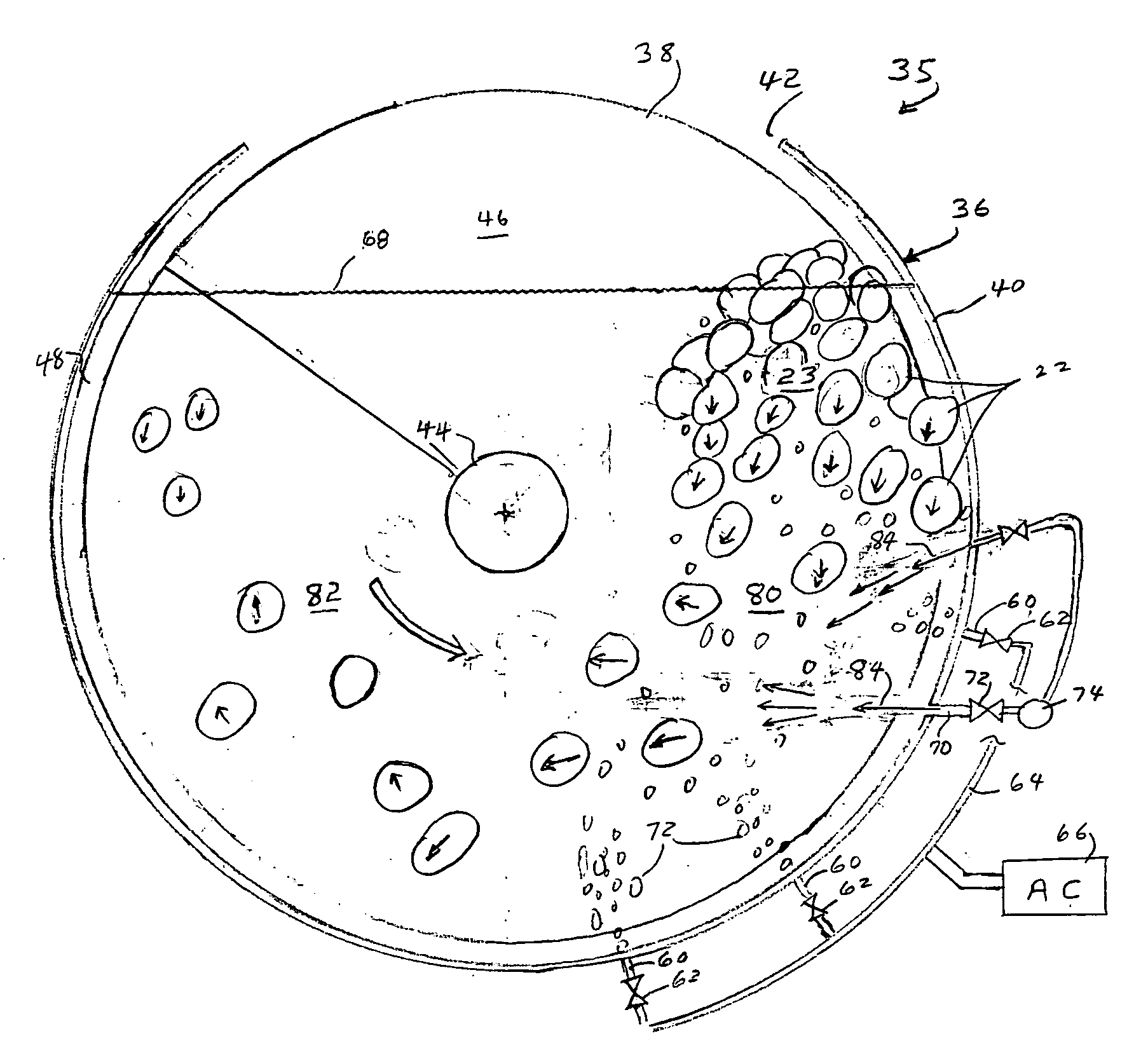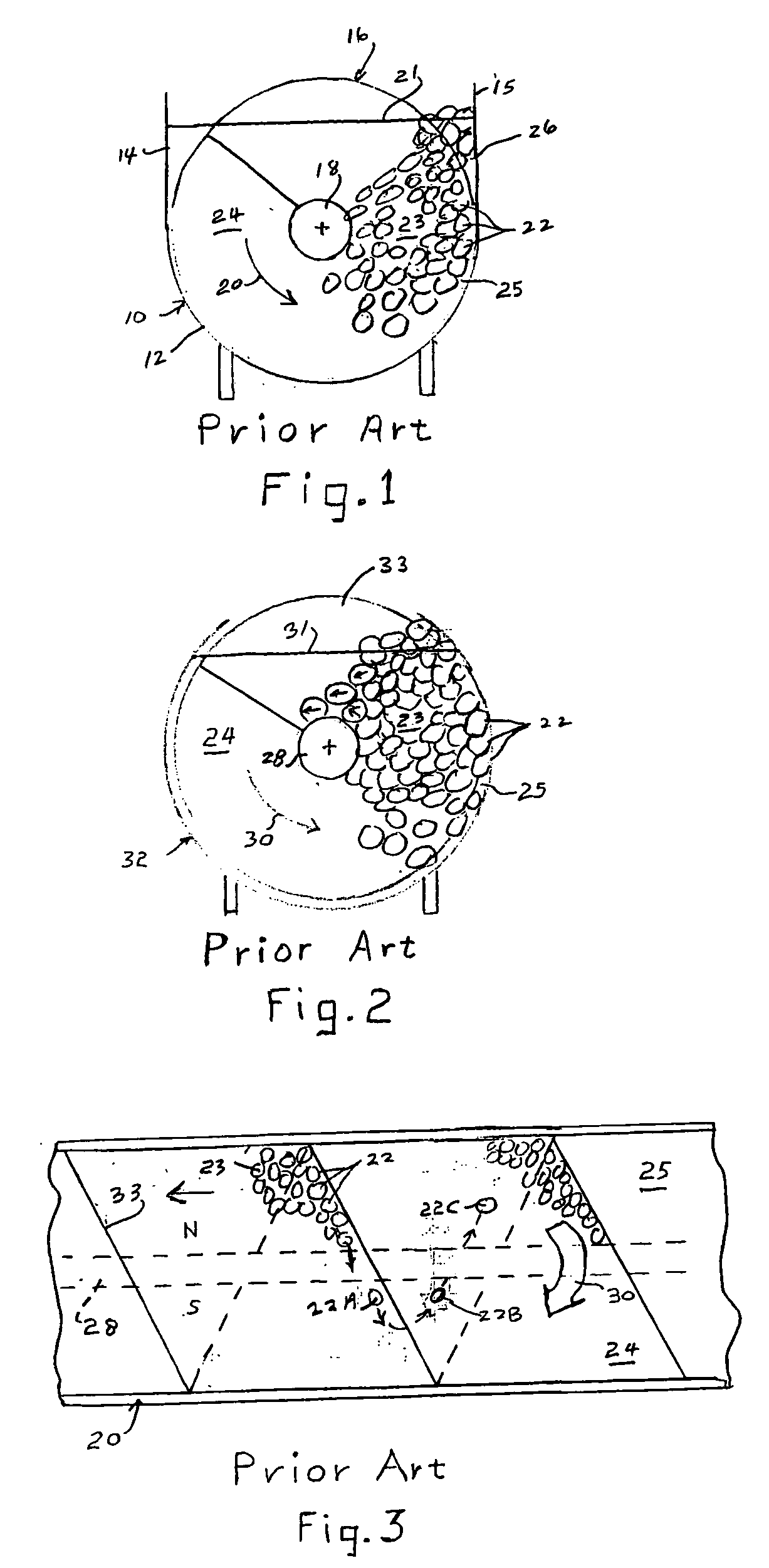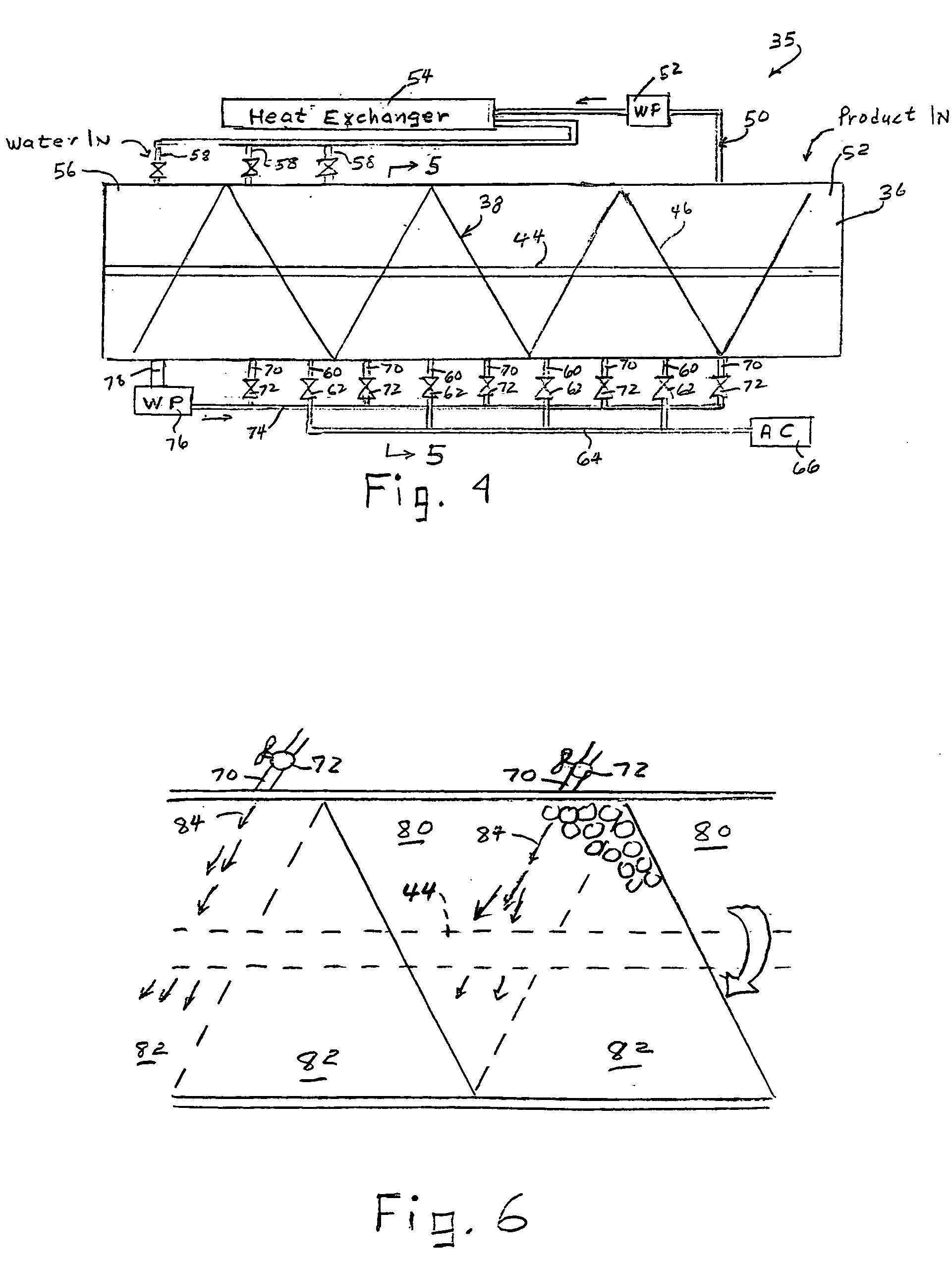Chiller with improved product distribution
- Summary
- Abstract
- Description
- Claims
- Application Information
AI Technical Summary
Benefits of technology
Problems solved by technology
Method used
Image
Examples
Embodiment Construction
[0028] Referring now in more detail to the drawings, in which like numerals indicate like parts throughout the several views, FIGS. 4 and 5 illustrate a poultry chiller 35 having an elongated tank 36 and an auger 38 in the tank. The tank has a semi-cylindrical side wall 40 that has an opening 42 at its upper portion. In the embodiment shown, the semi-cylindrical side wall extends approximately 290° about the auger 38, with the tank opening 42 extending the remaining approximately 70°. Other degrees of tank extensions about the auger may be used as may be desired. The helical auger 38 is centrally located within the semi-cylindrical side wall 40 with the auger shaft 44 being substantially coextensive with respect to the center line of the semi-cylindrical side wall 40 of the tank. The auger includes a helical blade 46 formed in several flights (not shown) that are supported by and surround auger shaft 44, with the auger blade extending out closely adjacent the semi-cylindrical side w...
PUM
 Login to View More
Login to View More Abstract
Description
Claims
Application Information
 Login to View More
Login to View More - R&D
- Intellectual Property
- Life Sciences
- Materials
- Tech Scout
- Unparalleled Data Quality
- Higher Quality Content
- 60% Fewer Hallucinations
Browse by: Latest US Patents, China's latest patents, Technical Efficacy Thesaurus, Application Domain, Technology Topic, Popular Technical Reports.
© 2025 PatSnap. All rights reserved.Legal|Privacy policy|Modern Slavery Act Transparency Statement|Sitemap|About US| Contact US: help@patsnap.com



